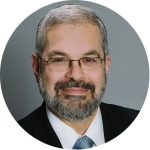
Professor and Chair, Department of Physical Medicine and Rehabilitation
Michigan Medicine/University of Michigan
Presentation Abstract
Growing up Active with Cerebral Palsy
Individuals with cerebral palsy (CP) have decreased levels of physical activity and high rates of sedentary behavior, which contributes to poor levels of fitness and a well-described pattern of early functional loss with aging. They have an increased risk of chronic disease as they age, including cardiovascular diseases, musculoskeletal syndromes, and mental health issues. There are many gaps in knowledge related to physical activity for individuals with CP across the lifespan, including the effects of several patient factors such as their age, gross motor functional level and medical co-morbidities that may affect physiological and social development. Children with CP undergo a variety of interventions, from therapies to surgeries, and it is unknown how treatment affects eventual fitness and participation in physical activity. Throughout the lifespan, nutritional levels will affect bone health and muscle development, and may be compromised by problems with swallowing, elimination, and access to an appropriate diet. Personal and environmental factors such as transportation, accessibility, social support, and socioeconomic status can affect access to meaningful physical activity, as well as the struggle to add physical activity to a schedule that includes increased self-care time. Successful strategies for promoting a life-long pattern of physical activity still need to be developed, and the effect of increased physical activity and decreased sedentary behavior on risk of chronic disease, patterns of functional loss, social outcomes and mortality need to be studied.
About Dr. Hurvitz
Edward Hurvitz is Professor and Chair of the Department of Physical Medicine and Rehabilitation at Michigan Medicine/University of Michigan, and the James W. Rae Collegiate Professor of Physical Medicine and Rehabilitation. He is a pediatric physiatrist, specializing in childhood onset disabilities. As department chair, Dr. Hurvitz oversees a large, nationally recognized rehabilitation department that includes a busy pediatric rehabilitation service with 12 faculty. His research has focused on adults with CP and other pediatric onset disabilities, particularly related to the risk of chronic disease with aging. He co-leads the International Cerebral Palsy Health Promotion Group, which has led to the publication of exercise guidelines for CP and an international project developing a protocol for health surveillance. Dr. Hurvitz has lectured internationally on health and fitness in adults with CP, including presenting the Chambers Lifespan lecture at the American Academy of Cerebral Palsy and Developmental Medicine in October 2013. Dr. Hurvitz is co-director of the Cerebral Palsy Research Consortium of Michigan, which promotes research related to CP by sharing expertise, collaborating, and assisting with recruitment. He is on the executive committee for the Cerebral Palsy Research Network—a national effort to create a registry for CP.
Dr. Hurvitz did not disclose any conflicts of interest for this workshop.